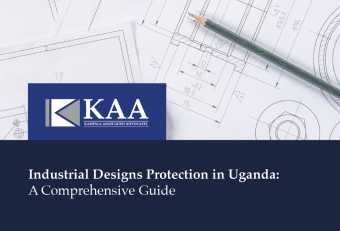Section 10 (1) of the Contracts Act, 2010 defines a contract as an Agreement made with the free consent of parties with capacity to contract, for a lawful consideration and with a lawful object, with intention to be legally bound. Consensus ad idem is the first essential ingredient of a valid contract. It means a meeting of minds of the parties. Thus the parties must have agreed to all the terms of the contract and understood them.
In Uganda, what amounts to an advocate client-relationship can be deduced from the provisions of the Advocates Act Cap 267 and the Advocates (Professional Conduct) Regulations Cap 267-2.
Section 1(a) of the Advocates Act defines an advocate as any person whose name is duly entered upon the roll. Section (1) b defines a client to include any person who, as a principal or on behalf of another, or as a trustee or personal representative, or in any other capacity, has power, express or implied, to retain or employ, and retains or employs, or is about to retain or employ, an advocate and any person who is or may be liable to pay an advocate any costs.
Regulation 2(1) of the Advocates (Professional Conduct) Regulations provides that no advocate shall act for any person unless he or she has received instructions from that person or his or her duly authorised agent. The requirement for instructions was re-emphasised in the case of Lakhman Bhimji V Manor Developments Ltd (Misc. App. No. 105 of 2010) where court held that a lawyer has no authority to act for anybody without instructions.
Whereas the question around the establishment of an advocate- client relationship has been a subject of various discussions and adjudication, there was, for some time, a settled view that the establishment of an advocate-client relationship was based on factual evidence. This requirement for factual evidence as a basis for the establishment of an advocate-client relationship was upheld in the decision of Ntege Mayambala V Christopher Mwanje (High Court Civil Appeal No. 72 of 1991). In the recent past however, this position has been disrupted through a new legal position in which establishment of an advocate-client relationship was based on circumstantial evidence. This was in the 2021 decision in the case of Namayega Barbara Versus Etot Denis, Mooli Albert Sibuta, Waluku Anthony T/a Waluku Mooli & Co. Advocates (HCCS No. 939 of 2019)
The latter decision has stirred up discussions among legal practitioners as to how the advocate-client relationships are created. We therefore set out to revisit the two cases so as to share guidance on the subject.
Factual establishment
Ntege Mayambala V Christopher Mwanje High Court Civil Appeal No. 72 of 1991
This was an appeal against a ruling of the Legal Disciplinary Committee made by complaint to them by Christopher Mwanje (purchaser/ respondent) wherein the Appellant (landlord’s advocate), on the vendor’s instructions, drafted a land sale agreement for the respondent and the vendor (landlord), and at the request of the respondent, received part of the sell price on behalf of the landlord. However, when the respondent tried to take possession of the land, the landlord not only denied ever selling his land and receiving any money from such sale but also denied the fact that the appellant was his lawyer. Court, reversing the decision of the Disciplinary Committee, among other things, held that the appellant was not the complainant’s lawyer and his remedy was against the seller and not the seller’s lawyer.
This case upheld the spirit of the Advocates Act and the Advocates (Professional Conduct) Regulations SI 267-2, under which establishment of an advocate-client relationship is a factual matter. The learned justices of the High Court stuck to the hitherto laid down principles on the establishment of an advocate client relationship and concluded that only the vendor, on whose instructions the appellant was acting, was the advocate’s (appellant) client and not the purchaser (respondent).
Circumstantial establishment
Namayega Barbara Versus Etot Denis, Mooli Albert Sibuta, Waluku Anthony T/a Waluku Mooli & Co. Advocates HCCS No. 939 of 2019
This was a ruling on a preliminary objections raised by the Defendants that the plaint had no cause of action; the Plaintiff had no locus standi to bring the suit and that the plaint was frivolous, vexatious and an abuse of office. Briefly, the Plaintiff (purchaser), and the vendor (Nanfuka Kintu Bakia), upon agreeing to enter a sale agreement, agreed to go to the chambers of the vendor’s lawyers where they met the 1st defendant who drafted a land sale agreement for the plaintiff and also witnessed the execution of the agreement and land transfer forms. He also escorted the plaintiff and the defendant to the plaintiff’s bank and witnessed the receipt of the purchase price by the vendor, his client, from the purchaser. The issues for Court’s determination were; Whether there was any duty of care owed to the plaintiff by the defendants? And; Whether the plaintiff was a client of Mr. Etot Denis, the advocate?
Court held that basing on the facts surrounding the matter, there indeed existed a client-advocate relationship between the Plaintiff and 1st Defendant carrying with it a duty of care.
In this case, Court seemingly disregarded the provisions of the Advocates Act and the Advocates (Professional Conduct) Regulations and inferred existence of an advocate-client relationship on the basis of circumstances that is; the vendor’s advocate (appellant) drafting and signing the sale agreement and almost all the transactions in relation to the land sale taking place in the Law firm chambers.
The two cases notwithstanding, it is important to analyse them within the context of the Anti-Money Laundering laws that is; the Anti-Money Laundering Act, 2013 as amended and the Anti-Money Laundering Regulations 2015.
Under the Anti-Money Laundering Laws, Advocates are listed as accountable persons. Being termed as an accountable person comes with numerous obligations under the Anti-Money Laundering Laws. Under Section 6 of the Anti-Money Laundering Act, an Advocate as an accountable person, is required to carry out due diligence into his or her customers/clients.
Section 6(2) provides for the circumstances under which an accountable person shall carry out due diligence. These include; before or during the course of opening an account for or establishing a business relationship with a customer; before carrying out an occasional transaction on equal to or above the amount of five thousand currency points or its equivalent in foreign currency, whether conducted as a single transaction or several transactions that appear to be linked; before carrying out an occasional transaction that is a domestic or international wire transfer; whenever there is a suspicion of money laundering or terrorism financing; to understand the ownership and control structure of the customer; whenever doubt exists about the veracity or adequacy of previously obtained customer identification data; and to take any other measure as may be specified by the Minister by regulation.
Section 6(3) and (4) provide for the due diligence measures to be applied by an accountable person. Under subsection 3, these due diligence measures include; Verifying the identity of the client using reliable, independent source documents, data or information; identifying and taking reasonable measures to verify the identity of a beneficial owner; understanding and, as appropriate, obtaining information on the purpose and intended nature of the business relationship to permit the accountable person to fulfil its obligations under the Act; in case another person is acting on behalf of the customer, identifying and verifying the identity of that other person, and verifying that person’s authority to act on behalf of the customer; and taking any other measures as may be specified by the Minister upon the advice of the Board and the Authority.
Section 6(4) provides for additional further customer due diligence measures and under paragraph (a), provides for the independent source documents to include; passports, birth certificates, driver’s licences, identity cards, national identification cards, utility bills, bank statements.
The Anti-Money Laundering Regulations of 2015 under PART V provide for the Objectives of, and carrying out, due diligence.
Regulation 14 re-echoes the circumstances under which an accountable person shall carry out due diligence and under Regulation 18 (1), an accountable person shall verify the identity of a person; before establishing an initial business relationship with the person; when undertaking occasional or one-off transactions for a customer or the person; when there is cause to be suspicious of any transaction or account; or when there is doubt about the veracity or adequacy of previously obtained customer information.
The new Anti-Money Laundering Laws therefore indirectly trigger a duty of care towards non clients. They obligate an advocate to Know his/ her Customer (client), and in this regard, carry out all necessary due diligence into that client. Failure to fulfil his/ her obligations under the Anti-Money Laundering Act, to the detriment of the opposite client, who factually, is not an advocate’s client, triggers a duty of care towards that non-client hence liability.
Whereas Court, in the Namayega case, concluded that there was an advocate-client relationship basing on the facts surrounding the matter without making reference to the laws on establishment of an advocate-client relationship in Uganda, the decision in this case should not be given a narrow interpretation. In light of the Anti-Money Laundering Laws, the Court was right to conclude that there indeed existed a duty of care between the Advocate (1st defendant) and the plaintiff, arising from the failure of the Advocate to fulfil his obligation of carrying out due diligence into his/ her client under the Anti Money Laundering Laws.
The same is in line with the earlier decisions in Baleke Kayira Peter & 4 OR’s V Attorney General & 2 OR’s (HCCS No. 179 of 2002) and Doran V Delany [1998] IESC where Court held that a professional owes a duty of care to non-clients; Hurry Narain Purrunsing V A’ Court & Co. and (2) House Conveyancers Limited EWHC 789, where Court held that a vendor’s solicitor is jointly liable to purchaser in Novel breach of trust case and; Champion Motor Spares Limited V Phadke & Amp Civil Appeal No. 23 of 1968) [1968] EACA 18; where Court held that an advocate is liable for an act of negligence or ignorance of elementary matters of law constantly arising in Practice. Therefore, at any one time, an advocate can be found liable for gross professional negligence even to “non-clients”.
Therefore, it would not be safe to argue that establishment of an advocate-client relationship is strictly factual as the same would imply that an advocate owes no duty whatsoever to a non-client, as was concluded by court in the 1991 case of Ntege Mayambala (supra). In light of the new Anti-Money Laundering Laws, there is a very thin line between an advocate’s clients and non-clients. The difference between the duty/ attention that should be extended to clients and non-clients is grey/ rather non- existent.
In conclusion, advocates should tread carefully more so when undertaking any kind of commercial transaction or conveyancing because they may be caught up by the new Anti-Money Laundering Laws which trigger a duty of care to non-clients. The obligations on lawyers may seem too many, but all such obligations have legal backing. Therefore, lawyers should keep track of the laws governing their practice and the amendments to such laws so as not to be caught on the wrong side of the law.



